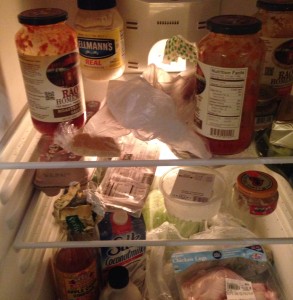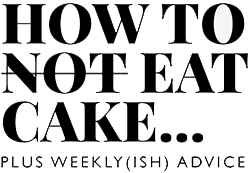 Binge-eating is, plain and simple, eating we do in reaction to deprivation around food (or a perceived threat of future deprivation).
Binge-eating is, plain and simple, eating we do in reaction to deprivation around food (or a perceived threat of future deprivation).
It’s eating we do because we haven’t had a piece of bread in 3 weeks and we can’t hold back one second longer. Or eating we do because we have every intention of never eating bread again, starting tomorrow.
I call these more obvious kinds of deprivation “physical restrictions” because they represent purposeful, conscious attempts at dieting, which we all know, almost always lead to binge-eating eventually.
Now there’s one other kind of deprivation that may lead to eating mass quantities of food when nobody’s looking, that I call
“Emotional Deprivation” or “Implicit Deprivation”
which happens when we experience the feeling that something we’re doing with food is dangerous, shameful, or inherently wrong.
When we “let ourselves eat food…”
…but feel anxious about it making us fat,
…worry we won’t be able to “control ourselves,”
…judge our behaviors harshly after crossing some arbitrary line of “too much food,”
…believe what we’re doing makes us unloveable pigs,
…or compare our behaviors to what we perceive as “normal,”
we send ourselves the conscious or sub-conscious message:
tomorrow I’ll try not to do this again…better get it in now.
Although we may not be depriving ourselves explicitly through planning traditional diets, fear of deprivation is implicit when we feel shame or judge our current behaviors.
Like this post? Sign up here for free weekly(ish) coaching emails.
